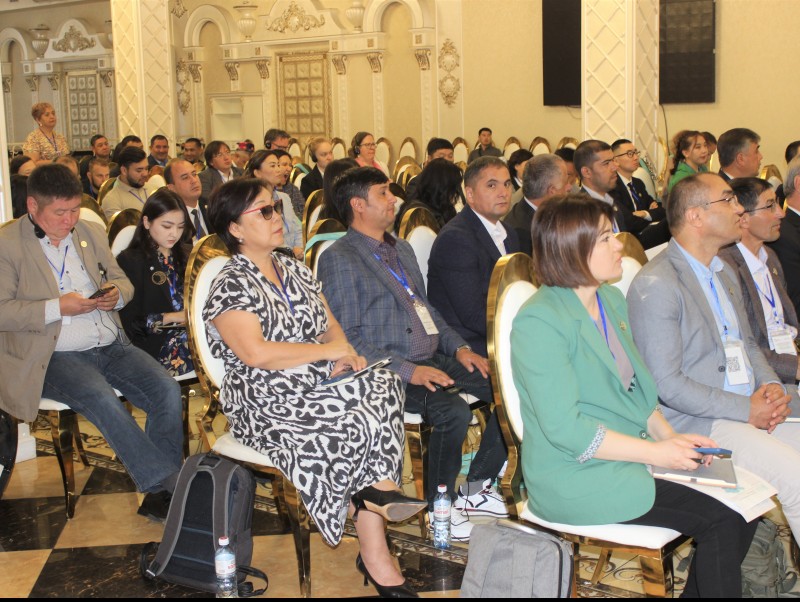
Approximately 100 representatives from Central Asian countries participated in the first international conference on enhancing the effectiveness of expert services in addressing environmental and related issues in the region. The conference took place on September 25-26 in Almaty, Kazakhstan.
The meeting was organized by the regional environmental expert network of Central Asia ("GREEN CA"), established by the Foundation for Sustainable Development "СAMР Alatoo" (Bishkek, Kyrgyzstan) and the NGO "Ecomuseum" (Karaganda, Kazakhstan), whose employees represent the administrative team of "GREEN CA." The initiative is supported by the project "Promotion of regional cooperation on integrated land use through strengthening the GREEN CA regional network," implemented by the Deutsche Gesellschaft für Internationale Zusammenarbeit GIZ (German Society for International Cooperation).
The conference aimed to strengthen collaboration among experts, scientists, representatives of state structures, international and business organizations in Central Asia within the "GREEN CA" network to address ecological and natural resource challenges in the region. The dialogue's priority tasks focused on assessing the needs and difficulties hindering effective cooperation between the expert community and service consumers (government agencies, donors, entrepreneurs, etc.) and developing effective mechanisms to eliminate barriers and promote collaboration.
Welcoming conference participants, Daniel Gereke, the regional program manager of ILUCA, expressed confidence that Central Asia needs expertise and experience crucial for solving environmental problems. "The 'Green CA' network is a way to initiate an expert movement in the region," Mr. Gereke said."
The main function of the network is to leverage the knowledge and expertise of local experts who possess an in-depth understanding of the internal situation, assess proposed donor support, and predict its effectiveness. This message in an online address to participants was conveyed by Andre Fabian. Several years ago, he worked at the GIZ office in Kyrgyzstan and first voiced the idea of uniting experts in Central Asia. "The concept of the network emerged back in 2018. Local experts provide worthy competition and serve as alternatives to external specialists hired for various projects. Upon completion of these projects, the results and continuity in knowledge and experience transfer were often lost," noted Andre Fabian. In the network's mandate, he suggested incorporating the preparation and submission of joint project proposals, creating a digital library of implemented initiative results, and providing training services to enhance the potential of local experts.
Since the inception of the idea until today, 139 experts and 30 organizations from all Central Asian countries have joined the network. Dmitry Kalmykov, the head of the NGO "Ecomuseum," clarified that "Green CA" attracts experts based on an internal rating system, assessment, and recommendations from thematic groups within which active network members are organized. An overview of professional skills conducted by the administrative team revealed that network members predominantly specialize in areas such as (1) environmental impact assessment; (2) public opinion research on environmental decision-making and legislation; (3) renewable energy and energy-efficient technologies; (4) the impact of radioactive disposal and solid waste; (5) glacial seismic activity; (6) environmental education; (7) biodiversity protection; (8) climate change and adaptation; (9) forestry and land use; (10) ecotourism.
Capacity Building
As noted, despite a wide and diverse range of competencies, experts in Central Asia are "scattered" and do not actively seek collaborative efforts, forcing organizations to independently address the need for required specialists. Aliya Ibraimova from the Foundation for Sustainable Development "СAMР Alatoo" shared her organization's experience, which involves creating its own pool of experts. "We invite a specialist, but often they are not familiar with the specifics of our work. Unfortunately, there is no time to bring them up to speed. Therefore, we try to 'grow' the expert we need – provide training and involve them in our events and research. Lately, we have focused on self-learning in sought-after expertise," stated Aliya Ibraimova.
The "expert shortage" in the professional community is attributed to several reasons. According to Umed Ulugov, a representative of the organization "Peshsaf," in Tajikistan, the lack of external assistance has resulted in a reduced number of organizations active in the field of ecology. The professional level of experts also "leaves much to be desired" due to the loss of previous connections. "In our observations, basic ethics are not followed among experts when pseudo-specialists present themselves as professionals, pursuing personal interests," noted Roman Chestnykh from "SP 'Vector'" (Kazakhstan). He called on conference participants to support each other and develop opportunities for not only internal but also independent expertise from colleagues in Central Asia. Summing up the discussion after group work, participants concluded that "Green CA" can fill the "personnel" gap by increasing the attractiveness of expert activities among young specialists and actively engaging with them, including organizing internships and joint research. This can be achieved through supporting feedback with experts, thoroughly studying the specialization of each, and collaborating with retraining centers to provide new knowledge.
Collaboration with Government Agencies
According to Oleg Pechenyuk from "Independent Environmental Expertise" (Kyrgyzstan), there has been a recent "staff turnover" from government agencies, weakening the established connections between experts and decision-making officials. This hampers the conduct of public expertise and affects the participation of experts in preparing various national reports and statements on global environmental challenges. "At international events, we no longer present ourselves as a subregion. Each country speaks separately without a connection to Central Asia. This problem needs to be addressed at the expert level," emphasized the representative from Kyrgyzstan. Marat Asanaliev from the program "Integrated Land Use with Climate Change in Central Asia" GIZ (Kyrgyzstan) supported this opinion. According to him, the donor organization makes sufficient efforts to develop the potential of government agencies, but in practice, after gaining experience and knowledge, employees move on to work in international or non-governmental organizations. In such conditions, how to achieve bilateral cooperation was also addressed during group work. "Green CA" experts proposed to continue establishing and strengthening connections with government agencies, actively involving officials in the implementation of initiatives, and offering their services.
On the Path to Sustainability
The second day of the experts' work was dedicated to discussing issues crucial for the existence of "Green CA" as an independent and influential association. Participants expressed their views and proposed various scenarios for the network's development.
Financial sustainability, according to participants, should be ensured through consulting services and already developed technological and digital products, such as mobile applications that can be adapted in the region's countries. Recognition of "Green CA" as a serious and professional community should be confirmed by the certification of the proposed expertise at the state level. To regulate the network's activities, experts suggested signing a memorandum of cooperation and transferring leadership responsibilities from country to country.
Experts also demonstrated their willingness to work on joint proposals, considering the specifications of donors without a guarantee of funding. In this case, they decided to define a common goal at the start, the achievement of which would result in an outcome beneficial for both donors and "Green CA" experts.
Network members expressed a desire to enhance the potential within the association and educate their colleagues. The administrative team of "Green CA" has already planned a series of upcoming training sessions for network members, covering topics such as land degradation economics, climate initiative financing, and partnerships in providing ecosystem services.
Summing up the two days of intensive work, participants and organizers unanimously agreed that the conference provided a platform for professional communication, where common interests, ideas, and goals emerged.

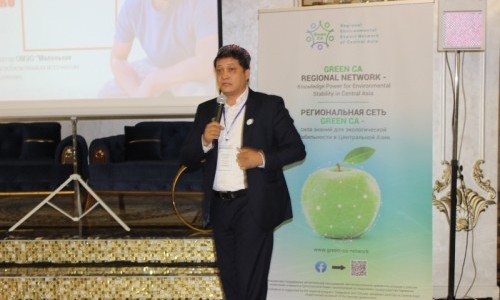
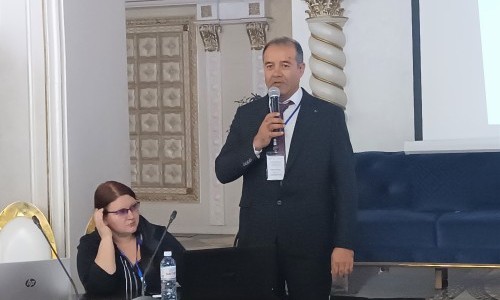
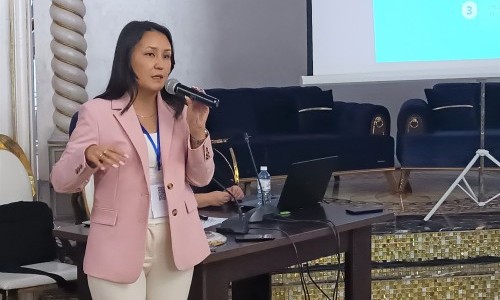
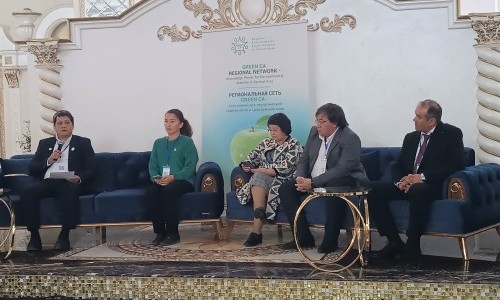
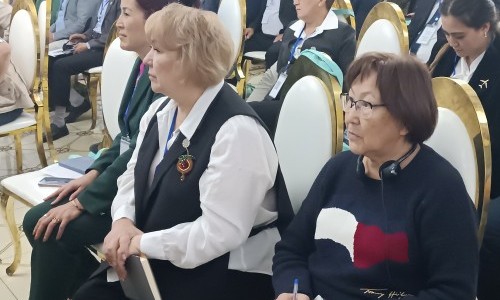
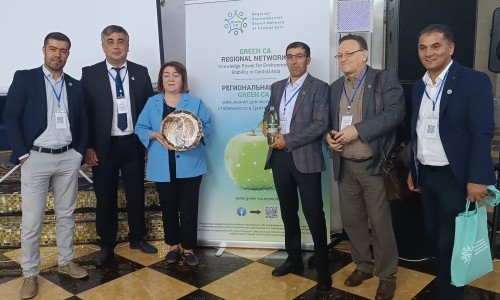
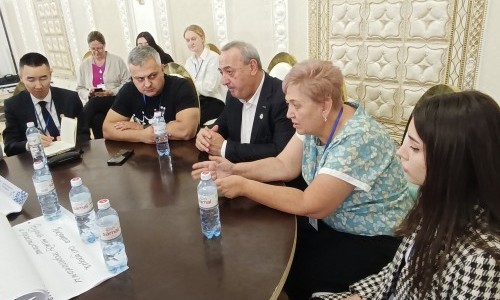
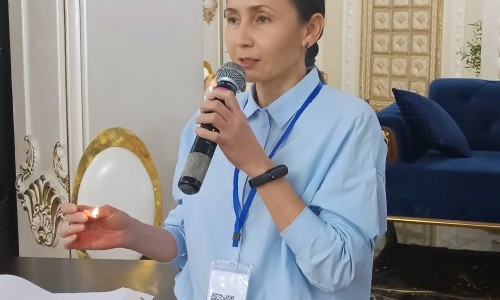
Итоги пастбищного сезона 2018 года были подведены на очередном заседании районной пастбищной комиссии (РПК).
MoreThe development of the unified method, "Monitoring Pastures at the Local Level," is nearing completion.
MoreЧетыре новых моста построены в 2018 году в Кыргызстане при поддержке ОФ “CAMP Алатоо” и Швейцарской ассоциации “Памирские...
More